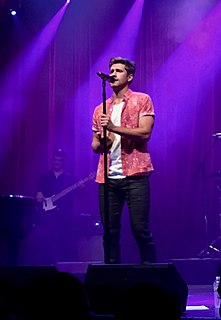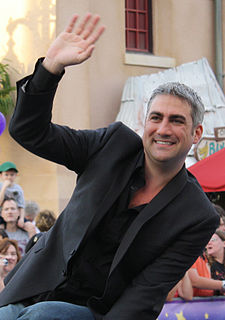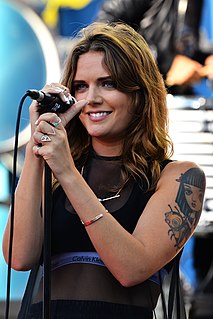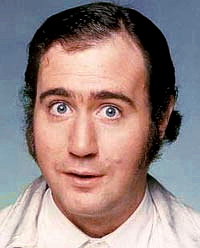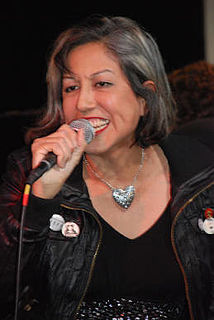A Quote by Peter Hook
When you've travelled for 34 years as a musician, you do all the culture stuff when you're young and full of energy. In the middle stage, you indulge too much and are scared of daylight. Then, in the final stage, you've seen it all, so you tend to take things a lot easier.
Related Quotes
That's the thing about stage: It's something you can't find anywhere else. It's a two-and-a-half, three-hour experience, and it's a real relationship. You're sending out energy from the stage, but the audience is giving you back so much also, so that's also lifting you and pushing you forward as you're performing and giving you so much energy. You can't find it anywhere else, and that's why people get addicted to being on stage, and when they're not on stage are kind of looking for that and constantly searching for it.
I'm not at the hoarder stage, but there are two or three storage units here and there. I have things that a lot of people put a lot of heart and soul into, a lot of mental energy. I'm good at keeping those things. When it comes to pop culture, as you move through this fast lane, you wonder where it all goes and how you can hold onto it.
It's important for me not to peak before I hit the stage. In other words, I save all of my creative and physical energy for when I walk on stage. If I can get 45 minutes of just easy going, playing rhythm, songs, stuff like that, then that's what I do to make sure that I'm all stretched out and ready.
I did, I was in Europe a lot. I would say, mid 20s to late 30s. Less so in the last ten or twelve years. Based on some political stuff and other things, I think I'm not the only musician, the only American jazz musician that's not going to Europe quite as much. I think we're seen a little differently in the world, unfortunately, than we were pre-Iraq invasion and things like that.
When I'm on stage, I turn into this rock person. I give everything I have. I sing with emotion, I'm loving it up there, and I think there's a lot of energy. In the same way that I'm open when I speak, I'm that open on stage. I feed off the energy of the audience too, so they're feeling what I'm feeling. And the set up is great - I have two drummers and a bass guy so it's just us four.
When you go through a tunnel - you're going on a train - you go through a tunnel, the tunnel is dark, but you're still going forward. Just remember that. But if you're not going to get up on stage for one night because you're discouraged or something, then the train is going to stop. Everytime you get up on stage, if it's a long tunnel, it's going to take a lot of times of going on stage before things get bright again. You keep going on stage, you go forward. EVERY night you go on stage.
I was full of energy, and I had a lot of bottled up rage that would come out in my stage performances. It was therapy sessions for someone who couldn't afford to go to therapy, a way to release my frustration, my inhibition. When I was little, growing up in an abusive household, I felt like I didn't have a voice. Suddenly I was on stage and people were watching me and listening to me, so even if I was singing about something that didn't have to do with abuse, when I was on stage I could express all of the anger, the rage.
Early on I was a lot more unsure of myself on stage. When our band The Decemberists was getting bigger audiences I was more concerned about alienating them, so I wasn't as willing to take risks and do weird stuff on stage. But once you get more accustomed to it you tend to have more fun with it and not worry about being pilloried for acting out. Whenever you play in front of 400 or 500 more people than you're used to it's always a weird, transitional period.


